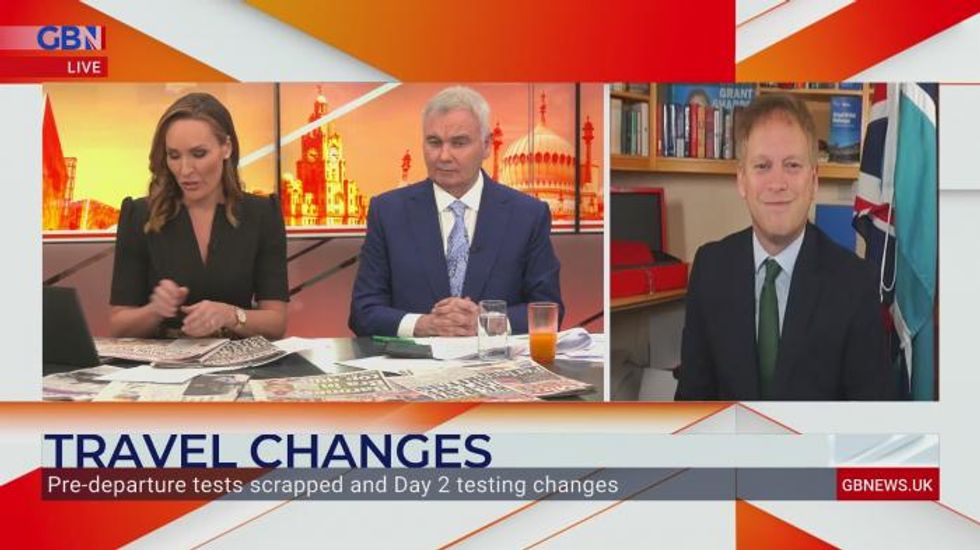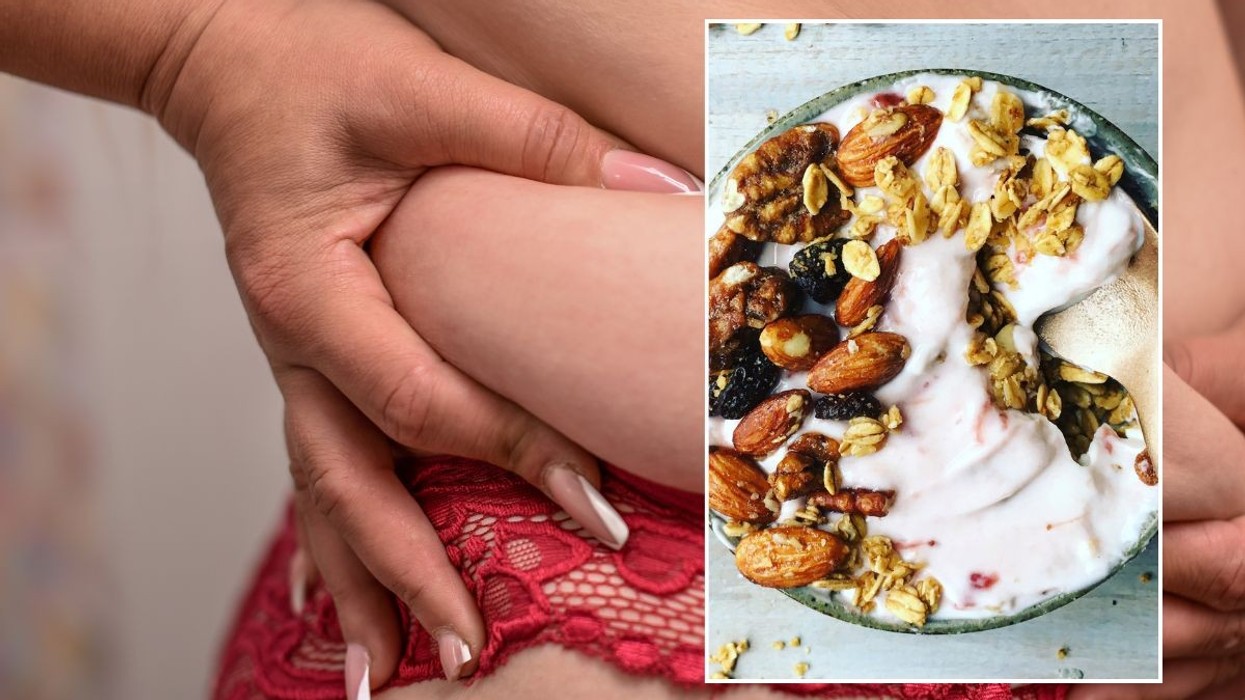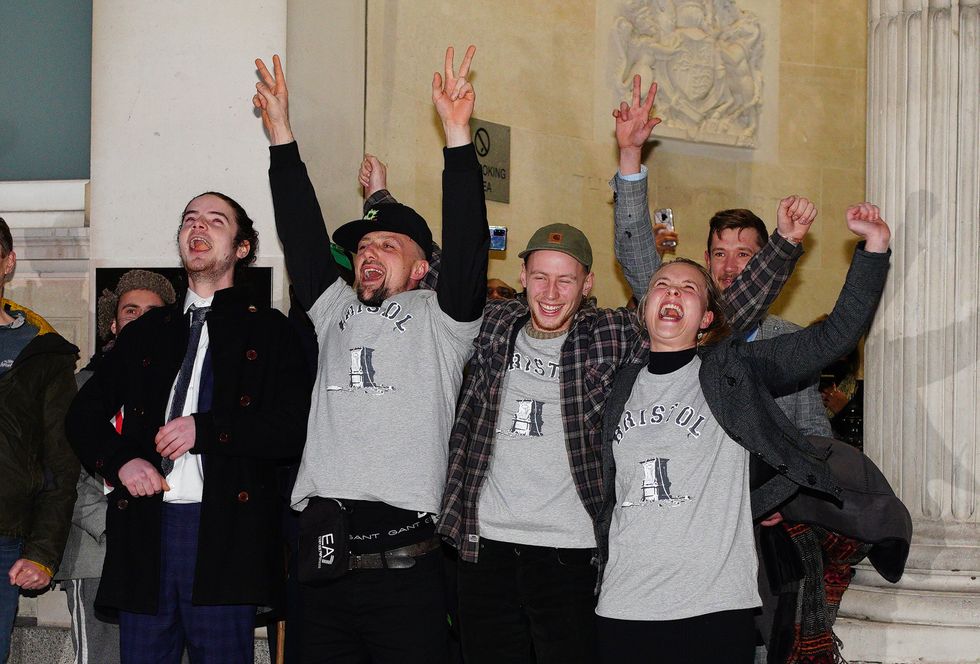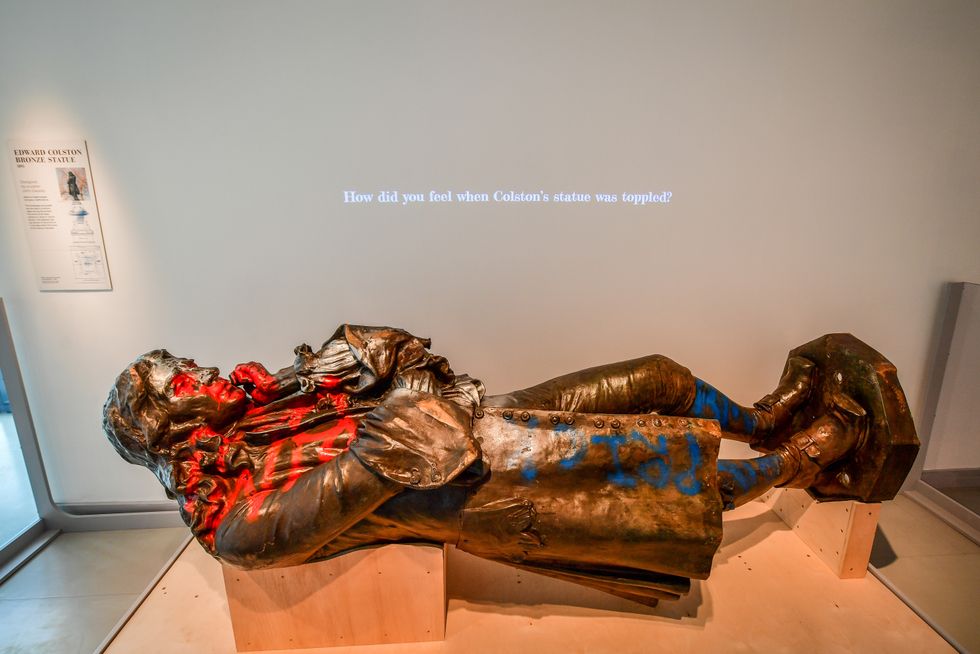Don't Miss
Most Read
Trending on GB News
A Bristol philanthropic organisation is facing calls to disband after its attempts to dilute new wording for a plaque on the statue of slave trader Edward Colston were aired in court.
During the trial of four people charged with criminal damage for toppling the statue, it was alleged the Society of Merchant Venturers disrupted the democratic process by proposing its own wording.
(left to right) Sage Willoughby, Jake Skuse, Milo Ponsford and Rhian Graham outside Bristol Crown Court. They have been cleared of criminal damage for pulling down a statue of slave trader Edward Colston during a Black Lives Matter protest in June 2020.
Ben Birchall
Rhian Graham, 30, Milo Ponsford, 26, and Sage Willoughby, 22, and Jake Skuse, 33, were cleared of wrongdoing by a jury at Bristol Crown Court on Wednesday.
The jury heard the statue was erected in 1895 – 170 years after Colston’s death – and that there have been campaigns to have it removed going as far back as the 1920s.
A bid to have a new plaque added to the plinth explaining Colston’s involvement in the slave trade was derailed by the Society of Merchant Venturers.
The society, which was founded in the 13th century, administered much of the £70,000 legacy Colston left to the city of Bristol after his death.
A planning application to change the wording on the statue was submitted in 2018.
Initial text put forward by a local historian said Colston had played “an active role in the enslavement of 84,000 Africans, including 12,000 children, of whom over 19,000 died en route to the Caribbean and America”.
It also noted that Bristol citizens who did not subscribe to his religious or political beliefs “were not permitted to benefit from his charities”.
Alternative wording proposed by the Society of Merchant Venturers emphasised the extent of Colston’s charity ahead of his career as a slave trader, and removed references to the selective nature of his philanthropy.
It also did not mention the trafficking of children.
The new wording was never added to the statue after an intervention by Bristol mayor Marvin Rees, who felt it had been diluted too far.
Mr Rees branded it “unacceptable” and refused to have any further involvement – the Society of Merchant Venturers later apologised for intervening.
Speaking after the not guilty verdicts, Christine Townsend, Green Party councillor for Bristol’s Southville ward criticised the “unelected” Merchant Venturers for the degree of power they wield in the city.
“That’s not elected political power, it’s backdoor power,” Ms Townsend said.
“It’s an opaque organisation, we cannot see their minutes, we cannot see their archives or their history.”
Ms Townsend said the society’s legacy was “inherited” from those “who made lots of money out of the exploration, exploitation of people in the past”.
The statue of Bristol slave trader Edward Colston, which was retrieved from the water after being toppled during a Black Lives Matter protest on 7th June 2020 and thrown into Bristol Harbour, is now being displayed at M Shed, Bristol, during the preview of 'The Colston statue: What next?'.
Ben Birchall
“We are as a country, but also certainly as a city, are getting to the point where we’re having a reckoning with that,” she said.
“Liverpool had these sorts of organisations and they got rid of them in the 1960s and 1970s.
“If certain people that are members of the Society of Merchant Venturers want to be involved in the political process decision making, then they need to stand for election.”
Ms Townsend said: “If (the Merchant Venturers) want to sit in their mansion on Clifton and drink to Colston that’s up to them but it is not for them to be involved in our democratic processes.”
She added: “They just need to give it up and get out because we also saw them using public money to take on other members of the public over an issue around the zoo, and where the zoo can allow people to park their cars.
“It’s the lack of transparency that is really frustrating but I do think we do need to take time to think about it.”
Defendant Rhian Graham also echoed the call for the society to be dissolved.
“We need to be looking at how we memorialise and remember the people that were enslaved and really reckon with that history and be properly confronted as Liverpool has done a long time ago,” she said.
“I would like to see the Merchant Venturers disband.”
The Society of Merchant Venturers, Bristol City Council and Marvin Rees have been approached for comment.












